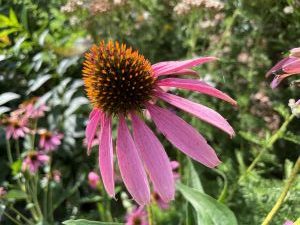
The Ontario Biodiversity Council recognizes that Indigenous Peoples are essential partners in biodiversity conservation and commits to “recognize and respect the contribution of Indigenous and local knowledge to the conservation and sustainable use of biodiversity and ecosystems.”1
First Nations, Métis Peoples and Inuit have cared for and depended on biodiversity for thousands of years. Colonization disrupted generations of Indigenous communities, and the tragic impacts of residential schools prevented the transfer of cultural knowledge to today’s young people. Canada’s policies and power imbalances deprived Indigenous Peoples of the ability to exercise their rights on traditional territories, undermining the Indigenous knowledge systems and practices that have protected nature since time immemorial.
The 1987 World Commission on Environment and Development emphasized the importance of preserving traditional knowledge, while the Canadian Biodiversity Strategy reinforced the need to respect, preserve and maintain the knowledge, innovations and practices of Indigenous communities and to seek community-based local responses.
The 1992 Convention on Biological Diversity agreed to “respect, preserve, and maintain the knowledge, innovations, and practices of Indigenous Peoples relevant for the conservation of biological diversity and to promote their wider application with the approval of knowledge holders and to encourage equitable sharing of benefits arising out of the use of biological diversity.”
The 2007 United Nations Declaration on the Rights of Indigenous Peoples recognizes that respect for indigenous knowledge, cultures and traditional practices contributes to sustainable and equitable development and proper management of the environment.
Indigenous lands make up around 20 per cent of the Earth’s territory, containing 80 per cent of the world’s remaining biodiversity — a sign Indigenous Peoples are the most effective guardians of the environment (International Institute for Sustainable Development).
Council values, and is motivated by the work done by Indigenous communities and organizations to protect and restore biodiversity, share knowledge, and inspire actions.
Council will strive to promote, support, and generate opportunities to increase Indigenous leadership and participation in conservation in Ontario and will:
We understand that this is only one step in our journey towards reconciliation and a stronger relationship with Indigenous Peoples that benefits biodiversity and builds a better future.
1 (UNEP/IPBES.MI/2/9, Appendix 1, para. 2 [d])
Follow Us
